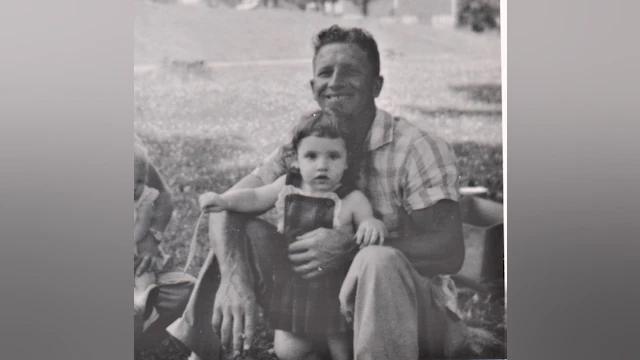June 14, 2019 - In February of 1971, when I was 14 years old, I lost my father to suicide. He was 45 years old. He left behind a wife and four children. He had retired from the Air Force two years earlier after a 20 year career as a firefighter. Unbeknownst to us, he also had an undiagnosed mental health condition.
They say hindsight is 20/20. Looking back, the suicide warning signs were there. However, it was 1971 and no one talked about suicide in those days. If we knew then what we know now, alarm bells might have gone off, especially in those last three or four days when his depression became acute.
What did we do in the aftermath? We carried on. After the funeral, we returned to what suddenly seemed like an empty house. My brothers and I returned to school. There was no therapy, no counseling. We just got on with our lives. Each of us dealt with our grief privately and separately.
In my case, my grief journey stalled. If you subscribe to the “stages of grief” model, I got stuck, fluctuating between “anger” and “bargaining” and “depression.” I suppressed my grief. For 28 years, I battled feelings of abandonment, guilt, grief and blind rage at my father for what he had done.
All the unresolved emotions, guilt, and incomplete grieving finally came to a head for me in 1999 and I sought out medical help. I was diagnosed with double depression. I discovered that I had most likely been suffering from dysthymia (chronic low grade depression) since I was a teenager. On top of that, I also had major depression.
Once I was diagnosed, I began talk therapy and I was put on an antidepressant. I faced my grief, and got through my major depression. I currently take an antidepressant for the dysthymia. We now know depression runs in my family. I occasionally get bouts of major depression but I know what my triggers are and what to do in the way of self-care to minimize it.
Some of the most important things I learned in my healing journey:
- It is never too late to start to heal. I waited 28 years before things got so bad for me that I reached out for help.
- Ask for help. Don’t try to do it alone. There were not a lot of resources out there when I had my loss. Today there are, and we know so much more about the causes of suicide and how depression affects the brain and body. Mental illness can be treated; it does not have to be a fatal illness. There is support for loss survivors.
- Information is your friend. Since joining AFSP, I’ve read all that I could about suicide and mental illness. When I read the studies, the research, and the accounts of people with lived experience (i.e. attempt survivors), I am surer than ever that while my dad died by suicide, it was just the end stage of the disease called DEPRESSION. It robbed him of his ability to process anything outside of his own pain. There were other options out there other than suicide, but the disease and the pain it caused made it impossible for him to see them.
- You have to let go of the guilt, the blame, and the anger. It wasn’t until I suffered my own bout with major depression and was on the road to recovery that I understood the havoc my illness had wreaked on my ability to think rationally and completely. My depression affected how I perceived the world. It affected how I processed information. I literally was not “thinking straight.”
I came to realize that my father probably had the same issues that I had, and that it wasn’t his fault or mine. He had not “abandoned” us, he did not have a character flaw, he was not weak or selfish or any of the other things I had accused him of for 28 years. He was ill: he had depression and that made it impossible for him to cope with the stressors in his life. Full stop.
Once I realized that, the anger and the guilt just went away. The grief is still there. It always will be. But the anger, guilt and blame are gone. I understand now the WHY of my father’s suicide, and I am at peace with it.
It’s been 48 years, and I am still learning. Since becoming a volunteer with AFSP in 2015, my thinking has evolved still. I no longer feel the need to forgive my dad for ending his life. I don’t view his death in the same way I did before getting involved with AFSP. It was not his fault that he could not see any other way out of his pain.
When a loved one dies from cancer or from diabetes, we don’t feel the need to “forgive” them. We don’t blame them for having the disease and we don’t blame ourselves for not having seen the signs. I have gone from “I forgive him” to “there’s nothing to forgive.”
I have also accepted that there are things about my dad and his last days that I simply will never know. What were the specific stressors that triggered his final act? The truth is, I will never know. Part of my healing journey is the acknowledgment of that fact. I accept that fact and I am okay with it.
If we had known the signs of depression in 1971, we might have been able to help him. But we didn’t. We can’t beat ourselves up for what we did not know then. It is not our fault.
I have learned so much about this subject, and everything I have learned has strengthened my resolve to be part of the solution. To that end, I serve on the Maryland AFSP chapter board as the Advocacy/Public Policy chair. My healing journey continues.
